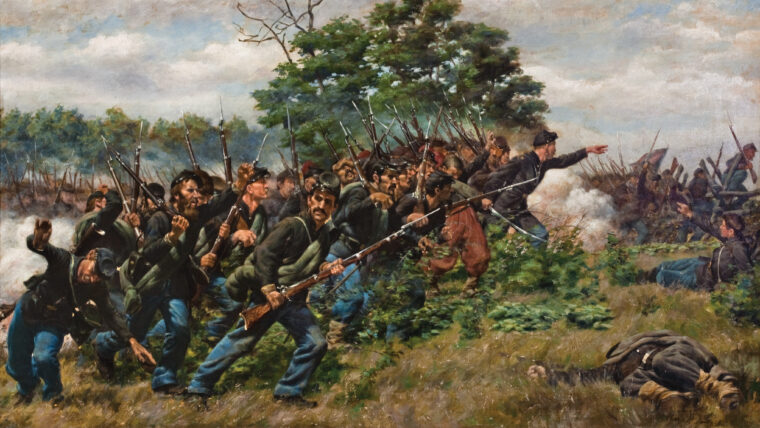
Civil War
Stalemate at Seven Pines
By David NorrisOn the last day of May 1862, heavy gunfire rumbled and thundered in the distance beyond the Confederate capital of Richmond, Virginia. Read more
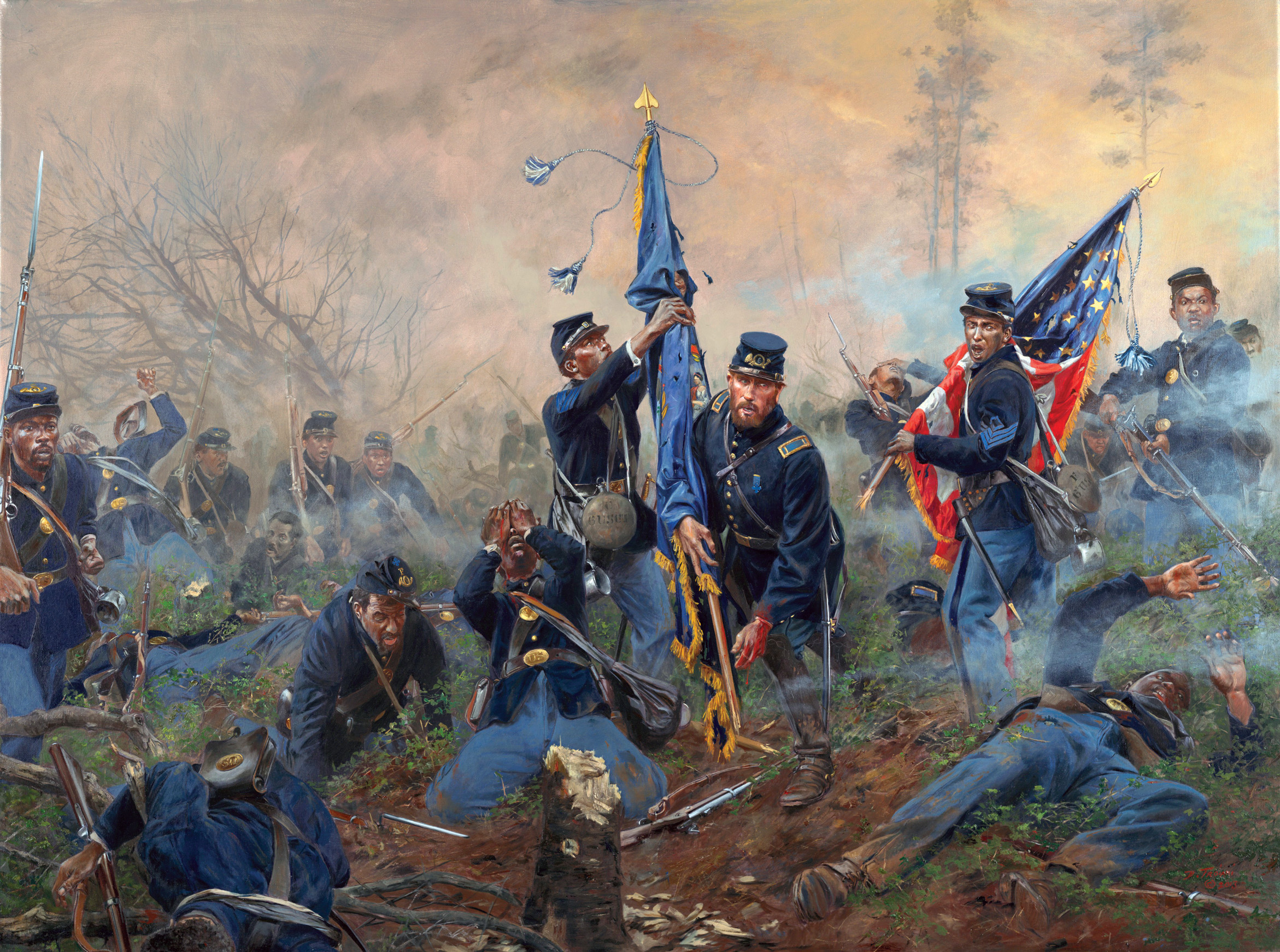
Warfare History Network is your best source for military history online. This is where we bring you our coverage on all aspects of the American Civil War—from the first shots fired at Fort Sumter to Antietam to the surrender of Robert E. Lee at Appomattox. In addition to substantial military coverage, we also examine the political climate of the 1860s and how the war influenced civilian life in the North and South. A trove of Civil War photos, maps, and color illustrations complement our written contributions from a team of established writers, including William Welsh, Pedro Garcia, and acclaimed author-historian Roy Morris Jr.

Civil War
On the last day of May 1862, heavy gunfire rumbled and thundered in the distance beyond the Confederate capital of Richmond, Virginia. Read more
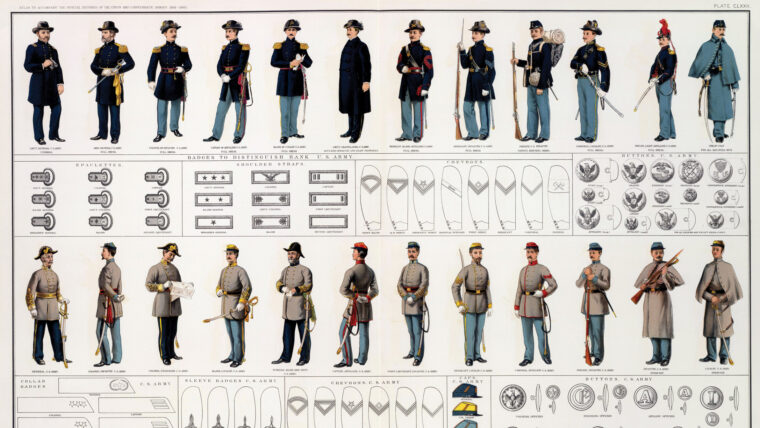
Civil War
The title of the 128-book, 138,579-page work was a suitably large mouthful: The War of the Rebellion: A Compilation of the Official Records of the Union and Confederate Armies. Read more
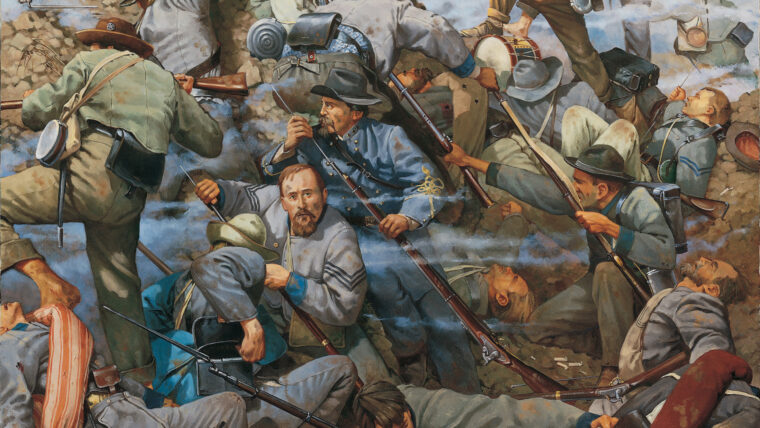
Civil War
On the morning of November 30, 1864, Fountain Branch Carter, a 67-year-old farmer, planter, and Confederate sympathizer, watched as his front yard in Franklin, Tennessee, filled up with Union soldiers pitching tents and starting campfires. Read more
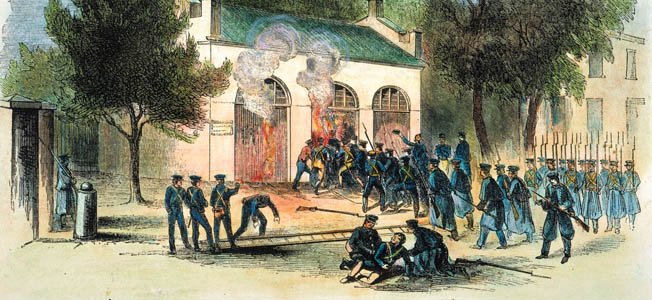
Civil War
On the morning of October 17, 1859, an aide to Secretary of War John B. Floyd hurried off with an urgent message for Colonel Robert E. Read more
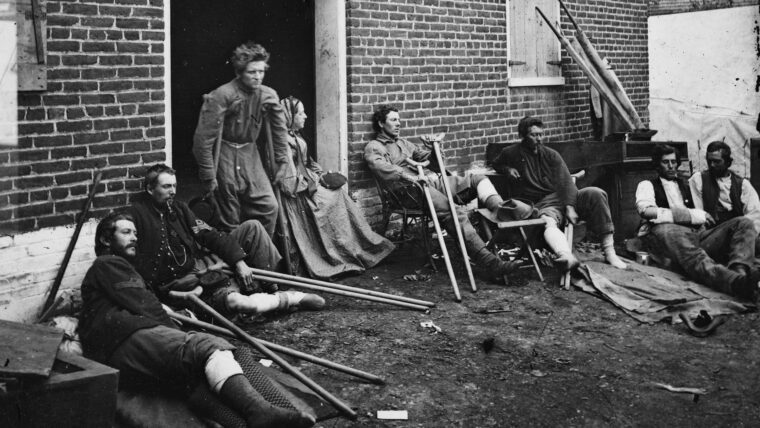
Civil War
A slight knee wound brought the New Jersey boy to a Washington military hospital, but “his mind had suffered more than his body,” wrote volunteer nurse Louisa May Alcott. Read more
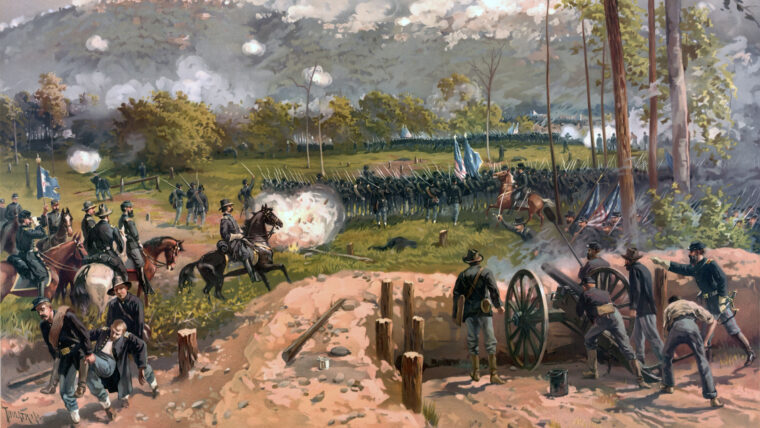
Civil War
Shortly after dawn on June 27, 1864, Union artillery crews sprang into action on 200 guns facing miles of the Confederate defenses along the Kennesaw Line near Marietta, Georgia. Read more
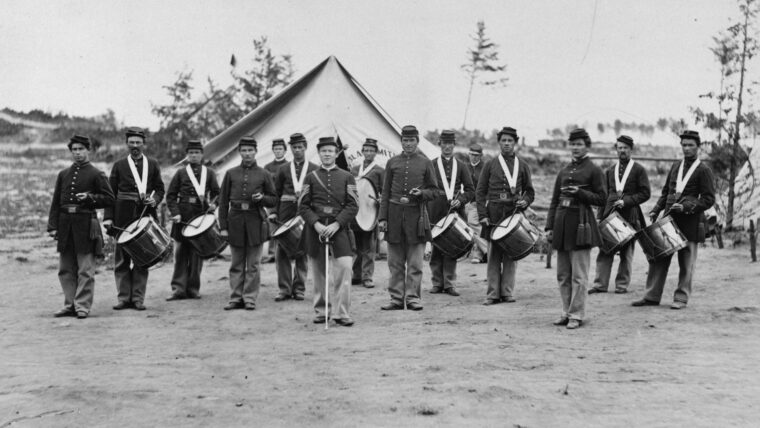
Civil War
Winter was the calmest period for Civil War soldiers. Knowing that there was no combat immediately looming on the horizon allowed the soldiers to relax and recuperate in ways they had not been able to enjoy beafore. Read more
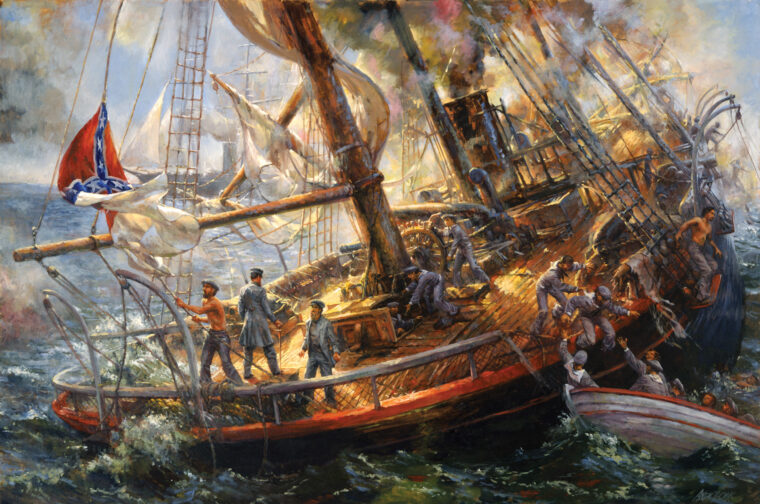
Civil War
On August 24, 1862, newly promoted Captain Raphael Semmes of the Confederate States Navy called his largely English crew to the quarterdeck of his new command, the 220-foot battle cruiser Alabama, lying off the coast of Terceira in the Azores. Read more
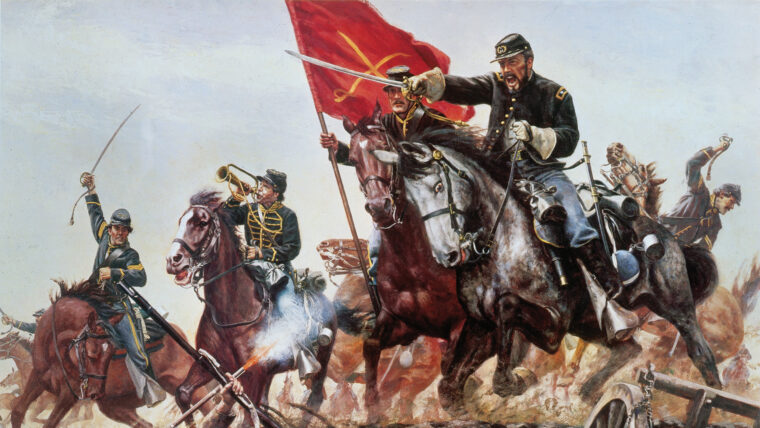
Civil War
As reveille sounded through the Union encampments on the south bank of the Tennessee River between Eastport, Mississippi, and Chickasaw, Alabama, on March 22, 1865, sleepy Federal troopers roused themselves, built fires, and cooked breakfast. Read more
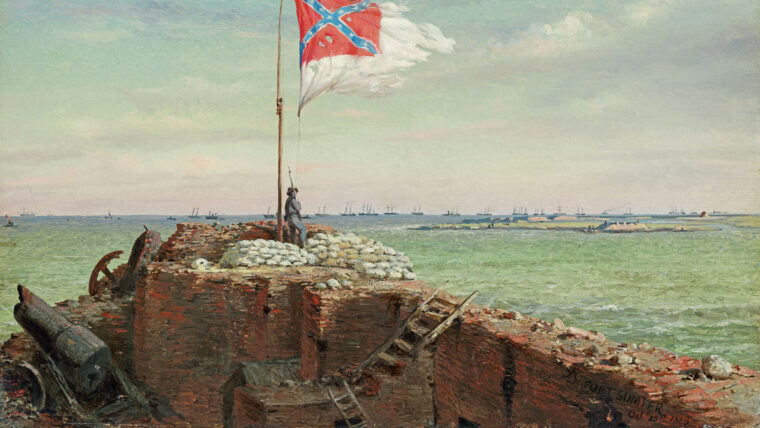
Civil War
The Union bid to capture Charleston, South Carolina, in April 1863 was set in motion seven months earlier, in the autumn of 1862. Read more
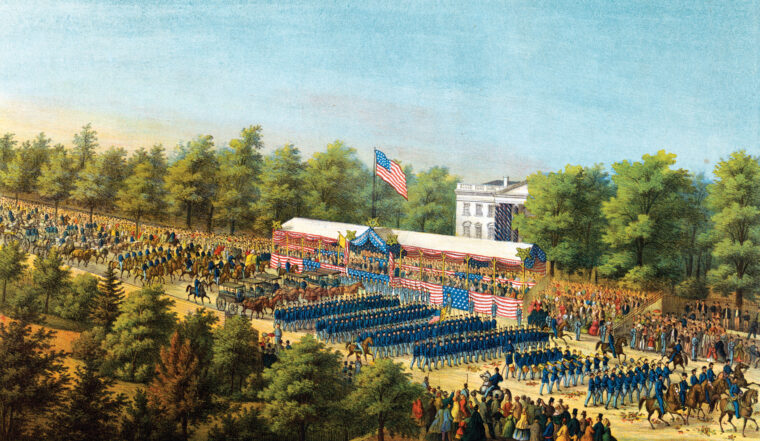
Civil War
Robert E. Lee’s surrender at Appomattox, presaging the subsequent surrender of other Confederate forces in the West and the capture of Southern President Jefferson Davis a few weeks later, marked the triumphant end of the nation’s great sundering. Read more
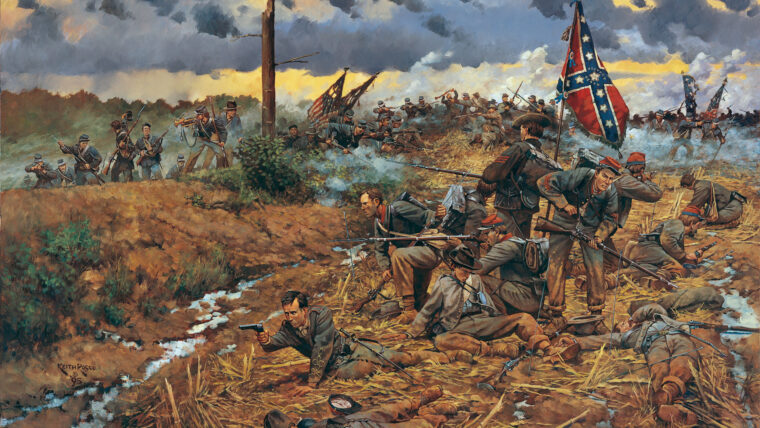
Civil War
Four hundred Confederate sailors and marines, their small arms loaded and ready, awaited their orders. Some men had their cutlasses within easy reach. Read more
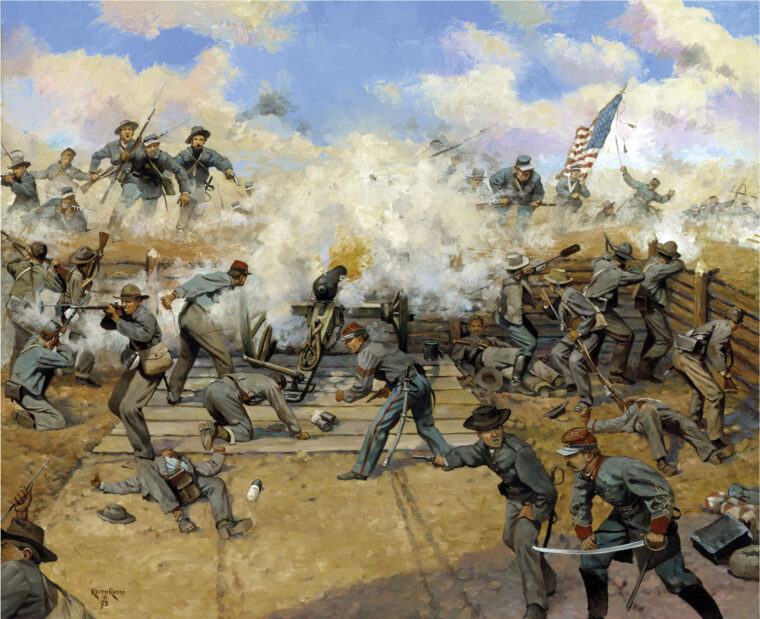
Civil War
Lieutenant Colonel Horace Porter, personal aide to Lt. Gen. Ulysses S. Grant, maneuvered his mount past ammunition wagons, ambulances, stragglers, and prisoners jamming the muddy roads leading back to headquarters from Five Forks, Virginia, on the evening of April 1, 1865. Read more
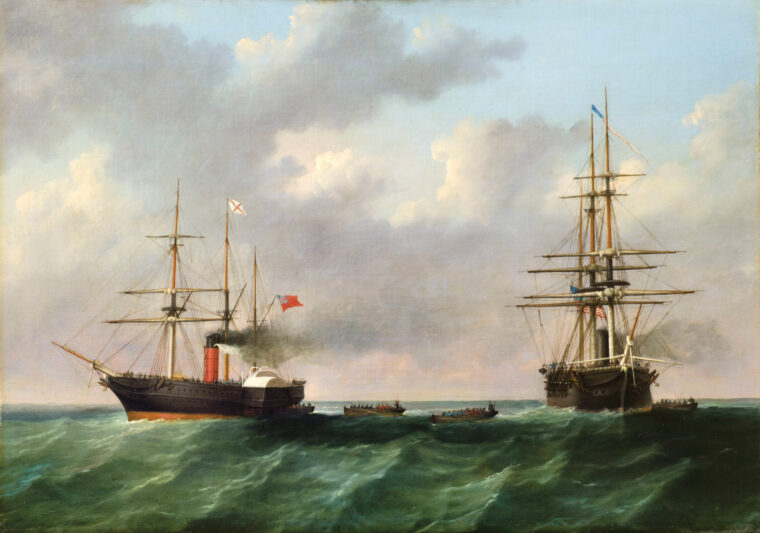
Civil War
In November 1861, word swept through London that an American warship, James Adger, in port at Southampton, was planning to put to sea and intercept a British ship bringing Confederate emissaries to Europe. Read more
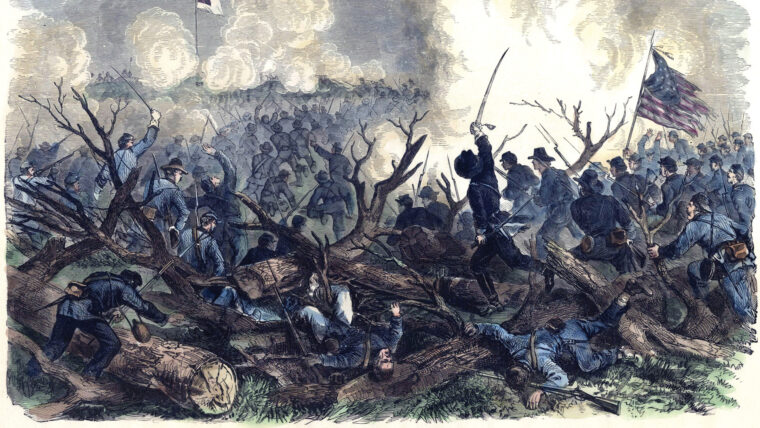
Civil War
Nathaniel Banks was a political creature, and with his country in the throes of civil war, he now held the politically obtained rank of major general in the Union Army. Read more
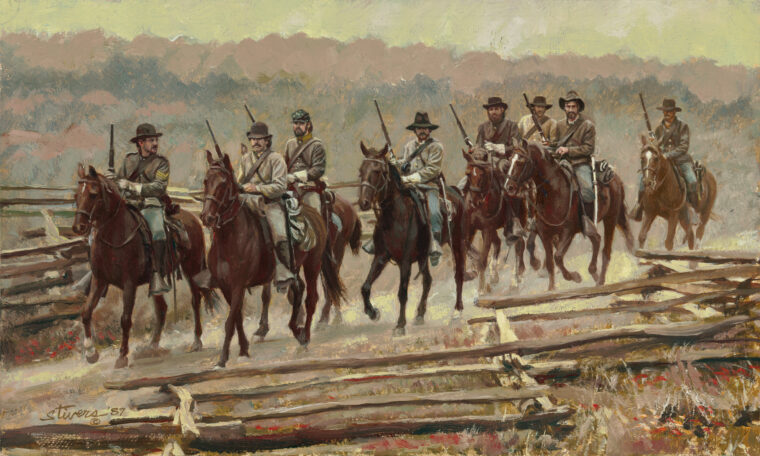
Civil War
“Fighting Joe” Hooker was fighting mad when he summoned his chief of cavalry, Brig. Gen. George Stoneman, to his headquarters at Falmouth, Virginia, on February 26, 1863. Read more
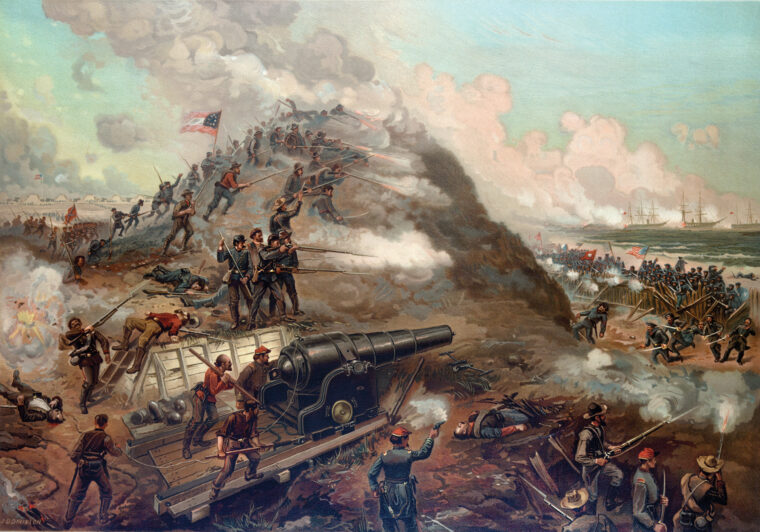
Civil War
The prospect of running the Federal blockade at Wilmington was easy in the beginning. North Carolina’s principal seaport was blockaded by a single warship, USS Daylight, and no one took the threat seriously. Read more
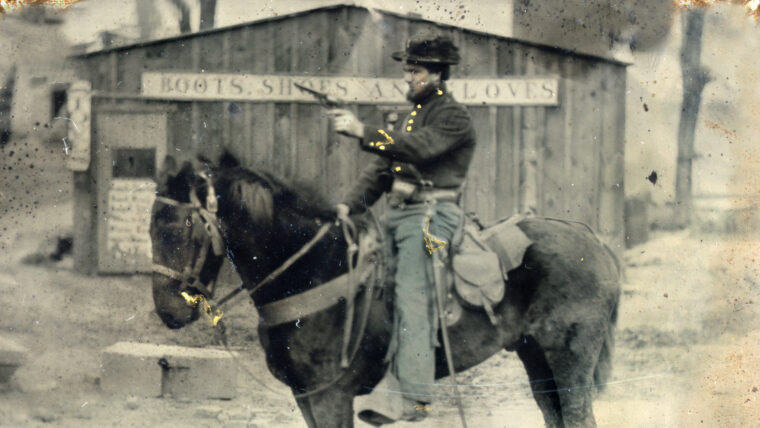
Civil War
Union Colonel Benjamin Grierson stuck his left foot into the stirrup and swung up into the saddle. Orders were quickly given, and soon a column of 1,700 blue-jacketed troopers of Grierson’s 1st Brigade, along with a battery of artillery, trampled southeast from La Grange, Tennessee, in the early dawn of April 17, 1863. Read more
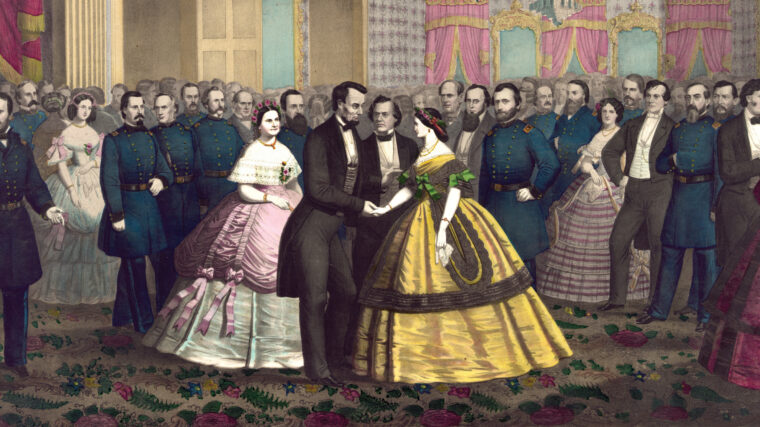
Civil War
On March 8, 1864, a rainy Tuesday, President and Mrs. Lincoln held a reception at the White House in Washington. Read more
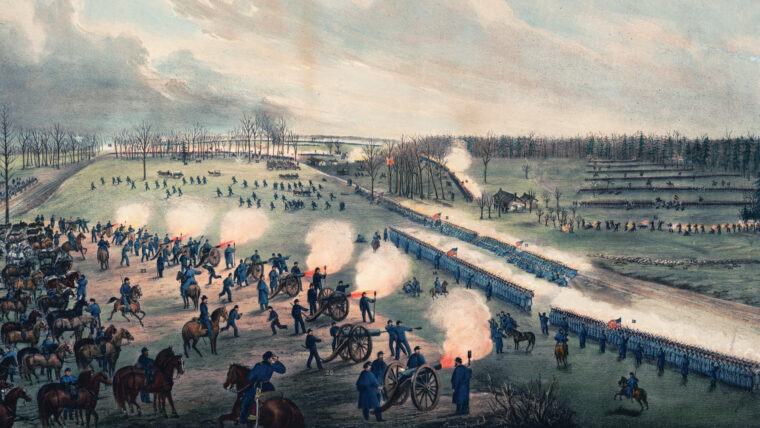
Civil War
For the weary troops of the Army of the Cumberland, there was precious little sleep to be had in the farm fields and cedar thickets northwest of Murfreesboro, Tennessee. Read more